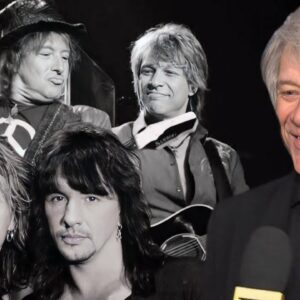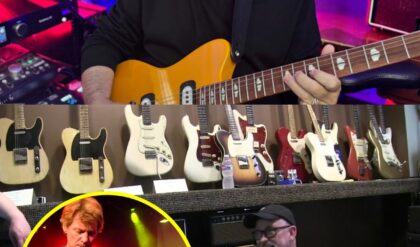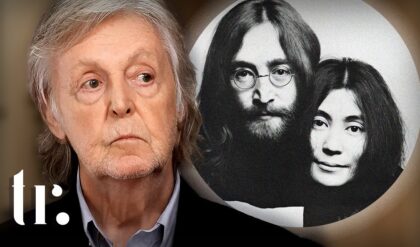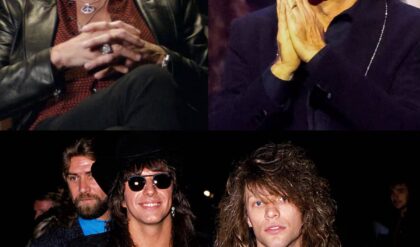Paul McCartney Reflects On His Feud With Yoko Ono Over The Beatles Split

The story of The Beatles’ breakup is one that has fueled decades of debate, speculation, and blame, with Yoko Ono often cast as the villain in the narrative. Fans and media alike pointed fingers at Ono, claiming she drove a wedge between John Lennon and his bandmates. For years, Paul McCartney lived under the weight of these accusations, enduring the idea that Ono’s presence was a destabilizing force within the band. Yet, as time passed, McCartney’s perspective evolved, and he found a path to reconciliation with Ono, shedding light on the more complex reality of what transpired during those tumultuous final years of the Beatles.
Paul McCartney recently opened up about his experiences during that era, reflecting on how difficult it was to adjust when Yoko Ono entered their world. He described a sense of disorientation when Ono became a constant presence in the studio, something that broke an unspoken rule among the band members. For years, it was understood that while their partners might visit the control room, they would not sit in on recording sessions. The arrival of Ono challenged that norm, and it was a shock to McCartney and the others, especially in an environment that had been exclusively male.
Looking back, McCartney acknowledges that he and the other Beatles were far from diplomatic in their response to Ono’s presence. He admits that, rather than confronting Lennon directly, he and the others simmered with unspoken frustration, passive-aggressively stewing over the shift in dynamics. McCartney noted that the initial shock of Ono’s constant presence, such as the image of her sitting on one of the amps, created tension. “Excuse me, that’s my amp,” he recalled thinking. But he recognizes now that his reaction wasn’t fair, explaining that his resistance was less about Ono as a person and more about the change she represented.
During this period, McCartney was keenly aware of the way the public perceived him. Many saw him as the one holding the band together, fighting to keep the Beatles intact while Lennon drifted toward a new life with Ono. McCartney’s frustration was palpable; he felt that Lennon was moving on without fully considering the impact on the group. Yet, over time, McCartney has come to see that Lennon was simply following his heart. “John fell wildly in love with her. He needed a big, big change in his life, and he got it,” McCartney reflected, acknowledging that Lennon’s passion for Ono was genuine and transformative.

The breakup of the Beatles was about more than one woman’s presence in the studio. McCartney came to recognize that it was a natural evolution, a band whose members were growing apart, each seeking new creative outlets. He admits that Lennon, in particular, was ready for a change long before the official split, and Ono’s influence became the catalyst that allowed him to embrace that change fully. McCartney no longer sees Ono as the reason for the band’s end but rather as someone who helped Lennon discover a new path, one that eventually led him to a different kind of artistic freedom.
Their path to reconciliation was not without bumps. In the years following John Lennon’s tragic murder in 1980, the relationship between McCartney and Ono remained strained. They navigated complex business dealings and the weight of grief, with lingering tensions casting a shadow over their interactions. Yet, something shifted in the early 1980s when McCartney decided to reach out to Ono, making an unexpected phone call. “Maybe I’ve misunderstood,” he told her, acknowledging that he might have been wrong in his judgment of her. His gesture was met with initial skepticism—Ono made it clear she didn’t want sympathy—but it marked the beginning of a tentative new understanding.
McCartney’s willingness to reassess his feelings toward Ono speaks to a larger theme in his life: the power of time to heal old wounds. He has since expressed a genuine respect for her, recognizing her as an essential part of Lennon’s life and work. “I thought if John loved her, there’s got to be something. He’s not stupid,” McCartney remarked, emphasizing that, despite their differences, he could appreciate the deep connection between Lennon and Ono.
In more recent years, McCartney has gone so far as to credit Ono for her role in Lennon’s solo career, particularly the iconic song “Imagine.” He sees her as a muse who helped unlock a different side of Lennon’s creativity, pushing him into new artistic territory. “I don’t think he would have done that without Yoko,” McCartney acknowledged, reflecting on the impact she had on Lennon’s later work, which was characterized by a spirit of experimentation and social activism.

The shift in McCartney’s attitude toward Ono has not gone unnoticed by the public, who once reveled in the notion of the two being locked in a bitter feud. The idea of McCartney and Ono making peace has been a source of fascination, as fans grapple with the possibility that one of rock’s most enduring rivalries might finally be over. For McCartney, however, the process of reconciliation has been more about coming to terms with his own emotions and letting go of the pain that surrounded the Beatles’ final chapter. It has allowed him to view that time with greater compassion and understanding, not only for Lennon and Ono but for himself.
McCartney’s reflections reveal a story far more nuanced than the simplified blame game that dominated headlines for years. The Beatles were four individuals growing in different directions, and the presence of Yoko Ono merely accelerated a process that was already unfolding. McCartney now sees that Lennon’s decision to devote himself fully to Ono was a natural extension of who he was—someone always searching for deeper connections and new ways to express himself. Instead of clinging to the bitterness of the past, McCartney has chosen to honor the memory of Lennon and the love he found with Ono, understanding that it was part of a larger journey that led to the dissolution of one of history’s greatest bands.
In the end, Paul McCartney’s evolving perspective on Yoko Ono is a testament to the power of time, empathy, and the realization that life is too short for old grudges. It is a story of acceptance, both of the Beatles’ end and of the paths each member chose to follow. While the myth of Ono as the woman who broke up the Beatles may endure in the popular imagination, McCartney’s journey toward peace shows that the truth is rarely so simple. And as he continues to reflect on those days, he has found a way to celebrate the music and memories they created together, even as he accepts that the band’s end was inevitable—a necessary part of their story and a step toward the lives they were meant to live.
News
Accused of Abusing Jayson Tatum in Public, Father Justin Breaks Silence on Celtics Star’s Harsh Upbringing
Accused of Abusing Jayson Tatum in Public, Father Justin Breaks Silence on Celtics Star’s Harsh Upbringing Accused of Abusing Jayson Tatum in Public, Father Justin Breaks Silence on Celtics Star’s Harsh Upbringing Having a harsh upbringing is something many people…
Millie Bobby Brown Details Her Luxurious Wedding to Bon Jovi’s Son: “It Was Unbelievable”
Millie Bobby Brown Details Her Luxurious Wedding to Bon Jovi’s Son: “It Was Unbelievable” Millie Bobby Brown e Jake Bongiovi oficializaram a união em maio deste ano, com casamento luxuoso na Itália Millie Bobby Brown e Jake Bongiovi (Foto: Getty…
Session guy Tim Pierce on playing with Bon Jovi, Crowded House, Goo Goo Dolls — and why he’d take 50 guitars to a session
Session guy Tim Pierce on playing with Bon Jovi, Crowded House, Goo Goo Dolls — and why he’d take 50 guitars to a session Session guy Tim Pierce on playing with Bon Jovi, Crowded House, Goo Goo Dolls — and…
Bon Jovi ‘Thank You, Goodnight’ documentary to include Jon’s and Richie Sambora’s regrets
Bon Jovi ‘Thank You, Goodnight’ documentary to include Jon’s and Richie Sambora’s regrets Richie Sambora has one, according to the trailer for the upcoming Hulu documentary, “Thank You, Goodnight: The Bon Jovi Story.” It premieres Friday, April 26, on Hulu….
Richie Sambora, former guitarist of Bon Jovi, revealed his only condition to return to the band
Richie Sambora, former guitarist of Bon Jovi, revealed his only condition to return to the band After Jon clarified that there were never fights between him and the group over their separation, Sambora pointed out that he is not closed…
Jon Bon Jovi Responds to Richie Sambora’s apology for controversial band exit
Jon Bon Jovi Responds to Richie Sambora’s apology for controversial band exit Richie Sambora’s departure from Bon Jovi in 2013 was one of the most talked-about splits in rock music, sparking rumors and speculation that lingered for years. Now, more…
End of content
No more pages to load











